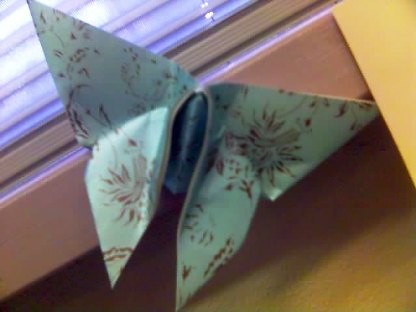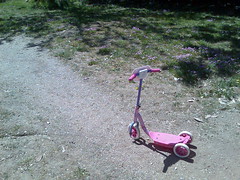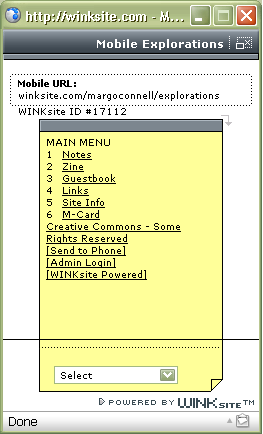"Mmmm, you could create a form of mobile-audio Haiku though," continued that voice in my head.Long conversations
beside blooming irises -
joys of life on the road
Matsuo Basho
Seeking - Walking the streets (Sept 26th, 2006)
 Marica at Seeking reflects on the use of audioblogging, after my spending time in Wellington with her and her colleagues at the Open Polytechnic of NZ. I was particularly drawn to her thoughts about the Haiku and how a short piece of writing can convey much (in a similar way to an image that speaks a thousand words I suppose).
Marica at Seeking reflects on the use of audioblogging, after my spending time in Wellington with her and her colleagues at the Open Polytechnic of NZ. I was particularly drawn to her thoughts about the Haiku and how a short piece of writing can convey much (in a similar way to an image that speaks a thousand words I suppose).
It seems easiest to liken haiku to a photograph, which captures a moment in time. A pure photograph describes a scene, and this description causes an emotional response in its viewer. There is no caption on the photograph that tells us what emotional response we are to take from it. It is instead a simple moment in time, unencumbered.Haiku is the same thing. When a butterfly lands upon an open flower, what does the haiku poet take from this? The same thing that his reader will take from it when he describes the moment in verse. But he trusts his reader to sense the same emotion from his accurate description of the scene. He does not need to say "How beautiful!" in reference to the moment, because his words should evoke the correct response in his reader.
I often have jottings and snippets or phrases dotted around my desk on sticky notes, or written messily into notebooks (like my A5 laptop for example!) - even noted quickly in my mobile phone - and these hold meaning for me in ways a well-structured sentence may not.
Thus, from little things big things grow, as they say!
I'll leave you with my try at a haiku:
Live out loud and soft:
Expect a newness within
Greet the world in song.
technorati tags:haiku, mobile, mlearning, seeking, marica.sevelj, winksite, writing, prose, poetry, learning, practice
Blogged with Flock

2 comments:
Thank you for taking the time to explore the use of winksite for such a simple and utterly beautiful purpose. In a world overrun with YouTube videos have reminded me and no doubt your readers of the pleasure and grace a few, carefully chosen words can bring to your life. Cheers.
Many thanks for taking the time to Comment David, the Winksite set up works a treat and it has surely been planned out well - thank you for offering such a great service!
All the best,
Marg :o)
Post a Comment